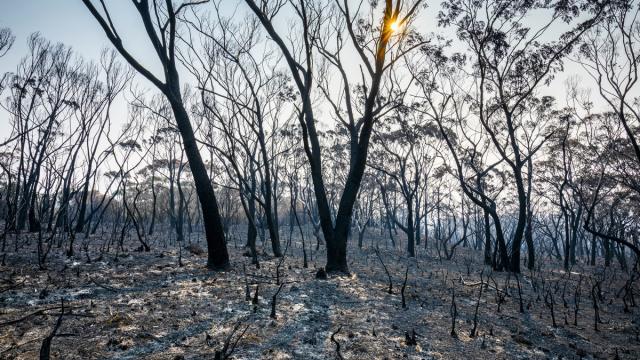A new report shows it’s unlikely Australia will meet its Paris Agreement targets, even as coronavirus wipes out most air travel emissions.
A report by environmental auditing company Ndevr Environmental has said Australia will not hit its projected 2030 target until at least 2035, as reported by the Sydney Morning Herald.
In its 2016 commitment to the Paris Agreement, Australia accepted it would work toward an emission reduction of 26 to 28 per cent below 2005 levels by 2030. This target would help the world stay on track to limit global warming to under 2 degrees Celsius.
[related_content first=”1196924″]
The report shows there was actually a 1.2 per cent drop in emissions between March 2019 and March 2020 compared to the previous year. The March quarter too saw a three per cent emissions decline compared to the previous quarter. While the declines are significant, they’re still not enough to reach the agreed Paris Agreement targets.
Ndevr Environmental’s March quarter report projects if emissions continued to decline at the rate of 1.2 per cent year-on-year, the target would be reached by 2035 — five years after the agreed target deadline.
The good news is that it’s still an improvement on previous projections. The previous two quarters, according to the report’s calculations, had seen Australia reaching those targets by 2098 and 2065 respectively.
“It has been possible to observe some of the effects the COVID-19 pandemic response on energy use,” the report read.
“Although emissions have not decreased at the rate initially expected, we have seen a significant decrease in aviation fuel use, with lesser effects reaching the NEM [the National Energy Market].”
Still, the slight decline in emissions will do little when the life-threatening consequences of a changing climate come knocking at our door. It’s something Australians got a taste of during the catastrophic 2019/2020 bushfire season.
[related_content first=”1203469″]
In 2018, the Intergovernmental Panel on Climate Change released a special report on the consequences of global warming. The IPCC found the world had 12 years to limit global warming to under 1.5 degrees Celsius from pre-industrial levels or face the “irreversible loss of the most fragile ecosystems, and crisis after crisis for the most vulnerable people and societies”.
The Paris Agreement, while a step forward for many countries’ climate change commitments, at its most ambitious is unlikely to be enough to achieve this.
“Current national pledges on mitigation and adaptation are not enough to stay below the Paris Agreement temperature limits and achieve its adaptation goals,” the report reads.
“While transitions in energy efficiency, carbon intensity of fuels, electrification and land-use change are underway in various countries, limiting warming to 1.5°C will require a greater scale and pace of change to transform energy, land, urban and industrial systems globally.”
[related_content first=”1199639″]
